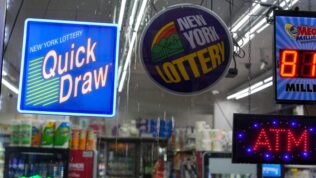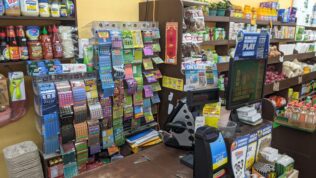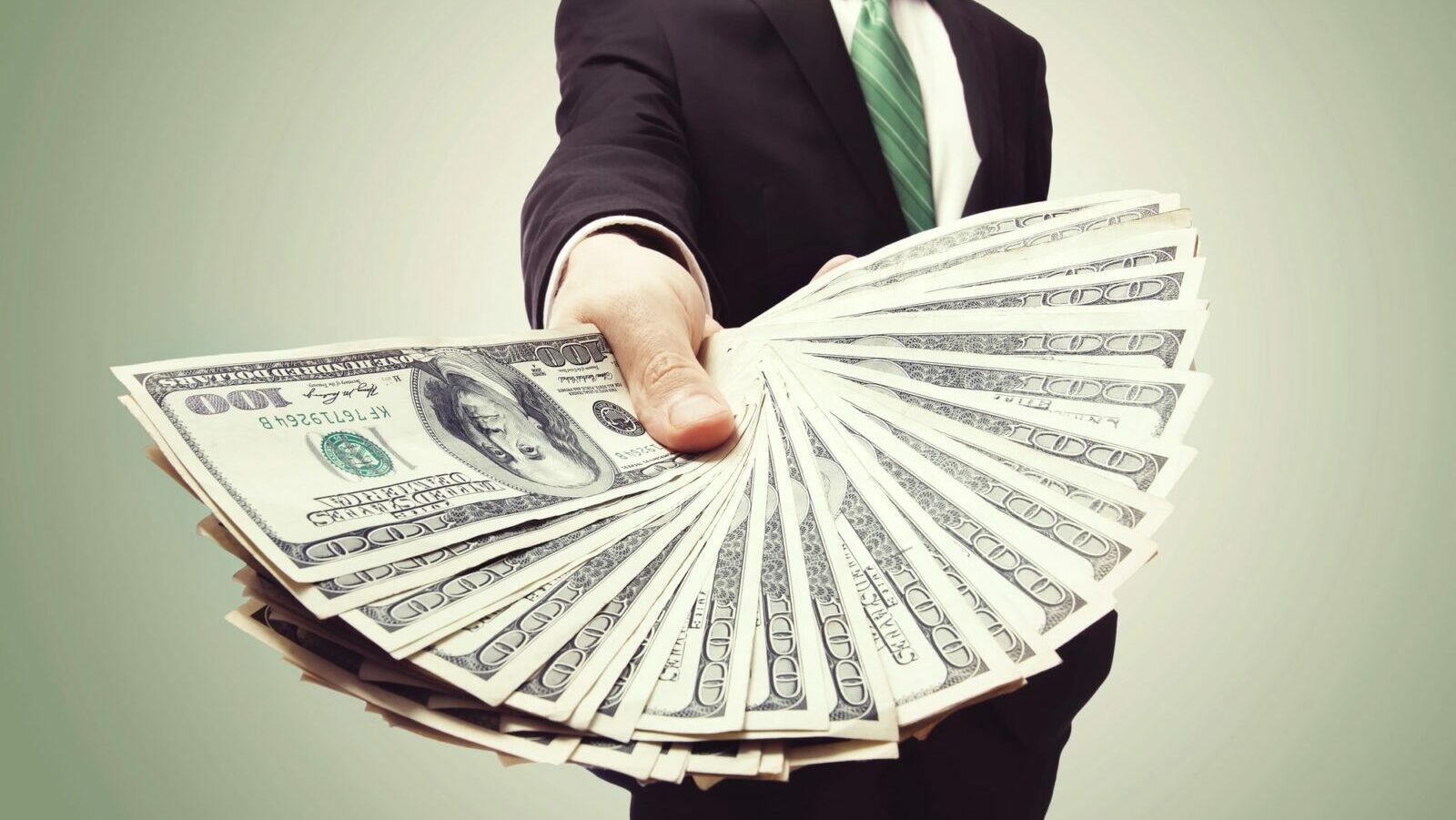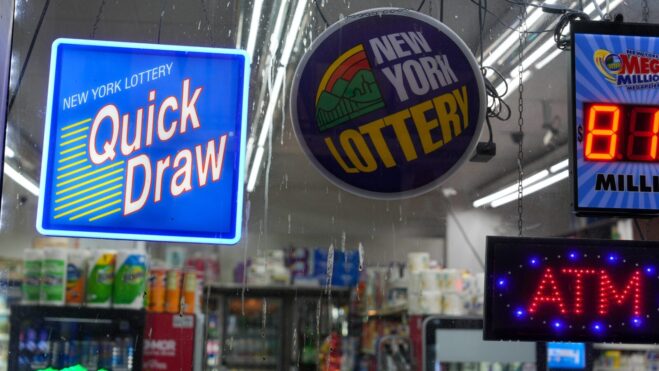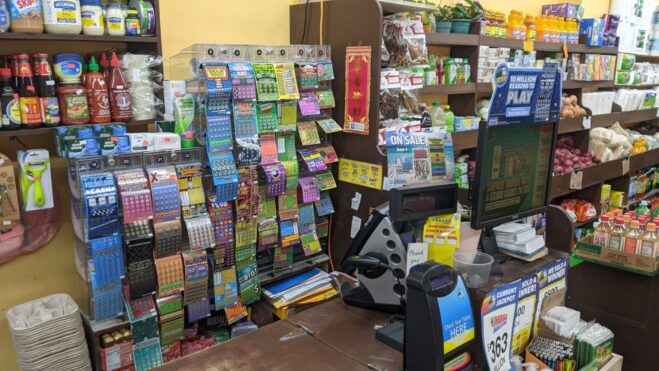Fare Well In Lottery, Don’t Necessarily Say Farewell To Welfare
Legal loopholes in some states allow formerly struggling lottery winners to keep collecting public assistance
4 min
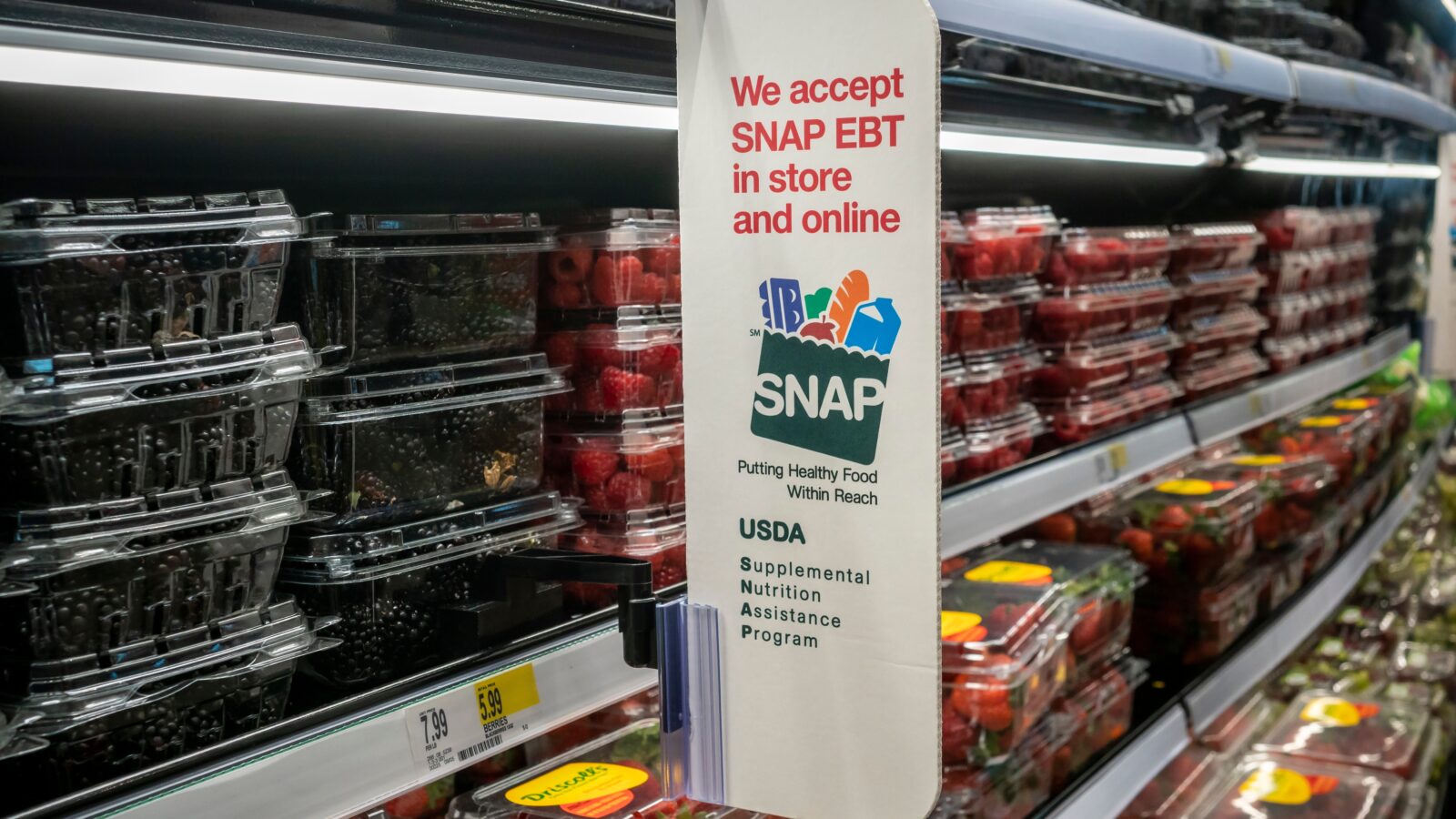
There are a number of things we generally believe to be true about playing lotteries in America that maybe we shouldn’t.
The big one is that winning a boatload of money is guaranteed to make us happy (not necessarily).
Others: Lotteries are always on the up-and-up and everyone has the same chance of winning (not necessarily); the wealthy have no interest in it and don’t win anyway (sorry, no); lottery proceeds help disadvantaged communities (um, not so much); the people who sell you tickets are entirely upstanding and happy to see you win (on what planet?), and some stores that sell lottery tickets are just luckier than others (grow up, people).
Here’s another to add to your list: When someone who is on public assistance catches lightning in a bottle and wins a substantial amount of money in a lottery, they’re kicked off the taxpayer-funded dole and the money they used to get every month goes to someone who hasn’t won a lottery and still needs help.
It only makes sense, right? After all, public assistance is for people who can’t afford the necessities — food, healthcare, housing. If you win a fat lottery, you can afford those necessities and then some, right? That’s the whole point of playing the lottery. And if you win, you get out of line.
That’s the way it’s supposed to work, and there are measures in place to ensure it happens. Generally, if you win big — or even big-ish, which we’ll get to in a minute —- you arrive at the state lottery office with your big smile and new-found strut, and gentlepersons in suits or other business attire run your info through the giant Big Brother computer, which spits out all your pertinent business: any back taxes you owe, spousal or child support, or any government assistance you receive.
And then the axe comes. Out come the back taxes (and the front taxes). Out comes the child and/or spousal support. And off the dole you go. The bright side is you don’t have to pay back anything you received pre-lottery — no Medicaid or Medicare premiums, food stamps or anything of that nature. But in terms of taxpayer-funded stuff, you’re cut off.
It only makes sense, right?
It does, but legal loopholes and inattention have allowed lottery winners big and small across America to continue suckling at the proverbial teat while living the lottery-induced high life.
The Maine event
In 2016, the Maine Department of Health and Human Services announced a change to state law that would ban food stamps for major lottery and gambling winners. What qualifies as “major”? Winnings of $5,000 or more in one calendar month. Anyone applying for food stamps would have to disclose their assets (“asset testing” in state lingo), and if their assets exceed $5,000 (including lottery winnings or gambling), they’re out.
Here’s the big question: What the heck was happening before 2016?
Answer: Nothing.
An audit by the state found that since 2015 there were 4,856 winning tickets of $1,000 or more that were cashed by 3,685 people who were receiving food stamps, Temporary Assistance for Needy Families benefits, or MaineCare (the state’s healthcare provider for the indigent) at the time they won. The winners received more than $22 million in prizes while on welfare programs.
“In no way, shape, or form should taxpayers be asked to foot the bill for someone who is gambling and winning huge amounts of money,” said Mary Mayhew, Maine’s Department of Health and Human Services commissioner. “Welfare benefits shouldn’t be used for gambling or lottery, and someone who beats the long odds and ‘wins big’ shouldn’t continue receiving assistance while he or she has that money.”
We don’t know if $22 million spread out over 4,856 consumers, an average of about $4,500 per ticket, qualifies as “huge amounts of money,” but the point remains.
Maine is not alone.
In 2012, the Los Angeles Times reported the story of Michigan resident and then-24-year-old Amanda Clayton, who, after paying taxes and taking the lump sum, walked away with about $500,000 after winning $1 million on the state’s “Make Me Rich!” television show. She bought two houses and a car but continued to collect $200 a month from a public assistance program because eligibility was based on income and Clayton was not working. Lottery winnings in most states don’t qualify as “income.”
“I thought that they would cut me off, but since they didn’t, I thought maybe it was OK because I’m not working,” Clayton said at the time. “I feel that it’s OK because, I mean, I have no income, and I have bills to pay. I have two houses.”
A lump sum … and then some
In a similar case in Michigan, Leroy Fick won $2 million in 2011, took the tax hit and lump sum option, went home with about $850,000, and continued to receive food assistance using the state-issued Bridge Card — after calling the state to make sure it was OK.
“They said I could go ahead and keep the Bridge Card if I wanted to,” said Fick. And they were right to, since eligibility was based solely on income and he wasn’t working, but collecting Social Security disability benefits. Again, lottery winnings are considered assets, not income.
(In response to public outrage, Fisk said he felt justified in his actions, since he paid over $1 million of his winnings in taxes, and after all, isn’t that what taxes are for?)
At any rate, a bill authored by state Rep. Dale Zorn and signed into law by Gov. Rick Snyder in 2013 required the Michigan Bureau of Lottery to determine if anyone claiming more than $1,000 in prize money owed money to the Unemployment Insurance Agency before paying out the winnings.
There are many federal laws and state laws that require lottery agencies to perform due diligence around lottery winnings and assistance programs, but they are only as good as their enforcement and compliance, and those vary state by state.
In 2023, a government watchdog group alleged widespread abuse of food stamp benefits across the United States to the tune of some 65,000 lottery winners who continued collecting food stamps even though their winnings put them over the federal income threshold for the Supplemental Nutrition Assistance Program (SNAP) program starting in 2019.
And that 65,000 represented data from just 13 states that complied with the request to share the names of lottery winners still on government assistance. The group estimates that five million people are enrolled in SNAP inappropriately at a cost to taxpayers of between $5 and $7 billion annually.
In January, Congressman Ben Cline of Virginia introduced a bill named “No Welfare for the Wealthy Act” that his office says seeks to eliminate the Broad-Based Categorical Eligibility (BBCE) loophole in the SNAP requirements that ignores assets — like lottery winnings — when considering eligibility. The bill is currently in committee.

